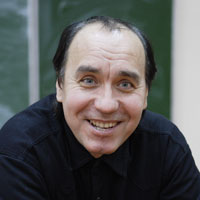How does our center of consciousness and will, observing incoming thoughts, evaluate them? This center of ours has a content filled with past representations, thanks to which this assessment is made. And we, for example, tell ourselves that a sinful thought has come to us. But who starts this rating? After all, not all thoughts that come to us, that is, to this center of consciousness and will, are evaluated by this center? Does this center itself, thanks to its content, turn itself on and evaluate the thoughts that have fallen to it for review? Or are some unconscious processes that are outside the center of consciousness and will connected?
Previously, I have shown that the process work center of consciousness and will, is the process of emergence of thought about thought, that is, the result of the evaluation fell from the subconscious thoughts, which, in the end, there is the idea of this fallen thoughts. Consciousness is always thoughts about thoughts. Thoughts themselves have nothing to do with consciousness and come to us unconsciously. But when we think about thoughts, that is, we evaluate them, and then, on the basis of this assessment, we connect them with another evaluated thought, then a conscious process arises. This is conscious thinking.
On the other hand, thinking can be unconscious or supra-conscious ( intuition). That is, it can be without evaluating thoughts - this is unconscious thinking. This kind of thinking can even be found in people in the early stages of development, and even in some animals that show intelligence.
Thinking can be conscious, which we discussed above. Such thinking is characterized by the evaluation of each thought, that is, the emergence of a thought about this thought, as a reflection.
Thus, the center of consciousness and will is something that we call the Self and identify with this center of ourselves. This Self has its own content, which is compared and interacts with the content of thoughts that came from the subconscious. And have yet to explore how the process of comparison and interactions associated with I by or associated with certain mechanisms outside of Ya.
When thoughts that came to us, not valued and not recognized us, our the reason I sleep? Or is it our unconscious that is dormant?
Who controls our mental processes and turns on or off the work of our consciousness? In any case, we are not complete managers of our mental processes, in particular, the process of turning on consciousness. Otherwise, we would be able to plan and predict the thoughts that will come to us, as well as what we can create in the future. Most likely, the role of consciousness in these processes is limited, but at the same time , we are given the beautiful and comforting illusion that we can freely choose and direct thought processes.
(see R. R. Garifullin, Ya and proto-Ya. Philosophical and psychological foundations of reflection,
Associate Professor of the Institute of psychology and education of KFU, candidate of psychological Sciences Ramil Garifullin
Who controls our mental processes and turns on or off the work of our consciousness?
Who controls our mental processes and turns on or off the work of our consciousness?

